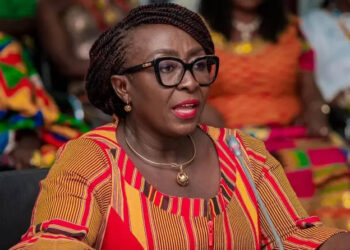By John Ikani
The United Nations Economic Commission for Africa (ECA) has issued a stark warning about the debt challenges facing the continent.
Around 40 percent of African nations are either in serious debt trouble or at high risk, with many spending more on servicing loans than on vital sectors like health and education.
Speaking at the 2024 African Economic Conference (AEC), Hanan Morsy, ECA’s Deputy Executive Secretary and Chief Economist, highlighted the need for transformative financial reforms.
Themed “Securing Africa’s Economic Future Amidst Rising Uncertainty,” the event brought together policymakers and economists to tackle the structural hurdles stalling Africa’s progress.
During a session focused on debt and tax reform, Morsy criticized the inefficiency of the G20 Common Framework. “There is need to become efficient, timely, and transparent. We need an integrated framework that includes the private sector, avoids prolonged negotiations, and ensures comparability of treatment,” she said.
She pointed to Egypt’s low-interest Samurai and Panda bonds as examples of leveraging alternative financing to cut costs.
Morsy also highlighted the inequitable allocation of the International Monetary Fund’s (IMF) Special Drawing Rights (SDRs), which saw Africa receiving a meager five percent of the $650 billion issued globally after COVID-19. She called for unused SDRs from wealthier nations to be channeled to African economies through multilateral development banks to better support struggling nations.
AfDB Chief Economist Prof. Kevin Urama added to the call for reform by stressing the need to modernize public financial systems. He cited the Public Financial Management Academy for Africa as a key initiative aimed at expanding tax bases and improving fiscal efficiency.
Urama also advocated for united African positions in global financial negotiations, supported by rigorous data and analysis.
The discussions highlighted the necessity of reshaping financial systems to spur economic growth and job creation. Both experts emphasized that Africa’s future lies in locally driven strategies and solutions tailored to meet the continent’s unique challenges.



































